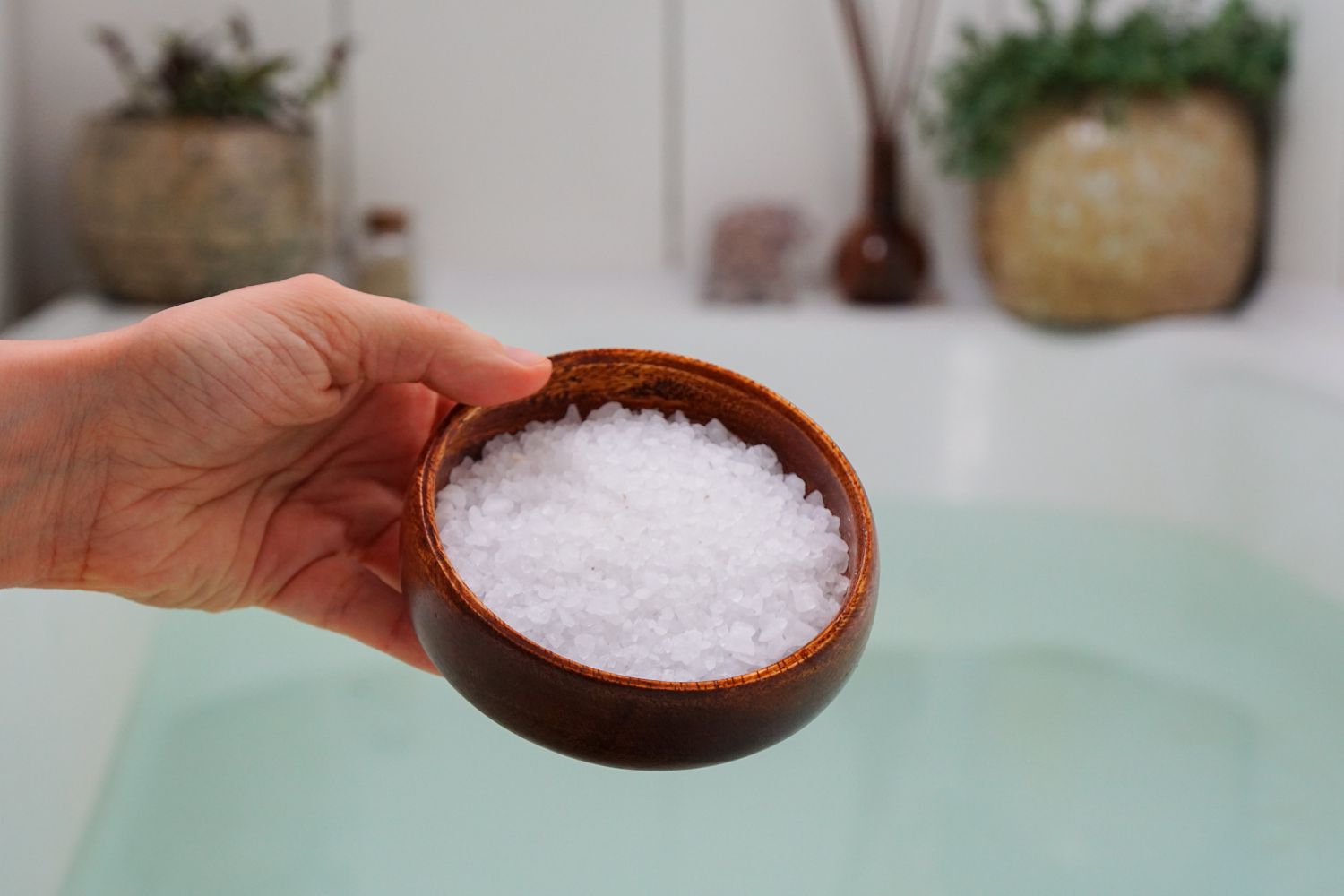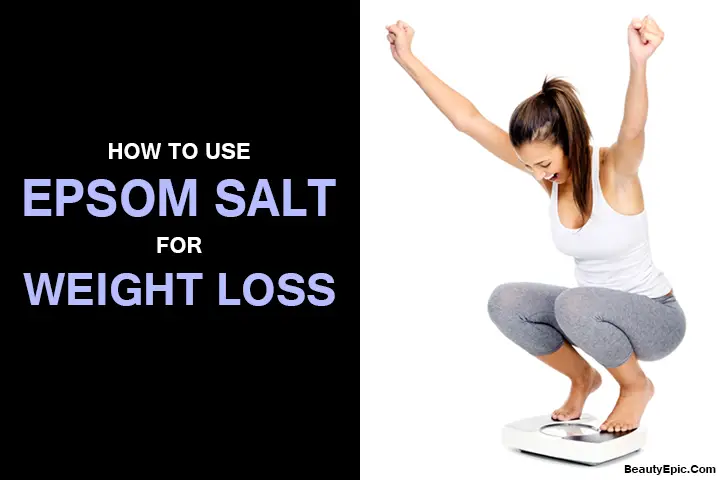Epsom Salt To Lose Belly Fat

The internet is awash with purported weight loss solutions, from restrictive diets to unconventional remedies. One such remedy gaining traction in online circles is the use of Epsom salt, particularly for targeting belly fat. But can this common household ingredient truly deliver on its promises?
This article will explore the claims surrounding Epsom salt and its purported ability to reduce belly fat, examining the scientific evidence (or lack thereof) and expert opinions to provide a balanced and informed perspective. It aims to cut through the noise and offer readers a clear understanding of whether Epsom salt is a viable weight loss tool or simply another unsubstantiated health fad.
What is Epsom Salt?
Epsom salt, or magnesium sulfate, is a mineral compound named after a bitter saline spring in Epsom, Surrey, England. Chemically, it's a hydrated form of magnesium sulfate (MgSO4·7H2O). It has been used for centuries for various purposes, including soothing sore muscles, relieving constipation, and as a bath soak.
It's readily available in most pharmacies and grocery stores, typically in crystalline form. The popularity of Epsom salt stems from its magnesium content, an essential mineral involved in hundreds of bodily functions.
The Claims: Epsom Salt and Belly Fat
The claims surrounding Epsom salt and belly fat reduction often revolve around its supposed detoxification and laxative effects. Proponents suggest that Epsom salt baths or oral consumption can flush out toxins, reduce bloating, and ultimately lead to weight loss, including the stubborn fat around the abdomen. Detoxification, in this context, is generally used informally and lacks a standardized scientific definition.
Some online resources even suggest specific methods for using Epsom salt for weight loss, such as adding it to bathwater or mixing it with water for consumption. These methods are often accompanied by anecdotal testimonials promising rapid results. But do these claims hold up under scrutiny?
The Reality: Lack of Scientific Evidence
Currently, there is no credible scientific evidence to support the claim that Epsom salt directly causes fat loss, particularly in the abdominal area. Studies on the effects of Epsom salt are primarily focused on its use for muscle relaxation and pain relief, not weight management.
While Epsom salt can have a laxative effect, which may lead to temporary weight loss due to fluid loss, this is not the same as actual fat reduction. Such water weight loss can be dangerous and does not contribute to long-term weight management.
Experts generally advise against relying on Epsom salt as a primary weight loss method. "While Epsom salt can provide temporary relief from constipation, it's not a sustainable or healthy way to lose weight," states Dr. Emily Carter, a registered dietitian. "Focusing on a balanced diet and regular exercise is crucial for long-term weight management."
Potential Risks and Side Effects
Consuming Epsom salt orally can have several side effects, including diarrhea, dehydration, and electrolyte imbalances. These side effects can be particularly dangerous for individuals with pre-existing health conditions.
Overuse of Epsom salt as a laxative can also lead to dependence, making it difficult for the body to regulate bowel movements naturally.
“It's important to remember that Epsom salt is not a magic bullet for weight loss, and its overuse can have serious health consequences,”warns Dr. David Lee, a gastroenterologist.
While soaking in an Epsom salt bath is generally considered safe for most people, individuals with certain medical conditions, such as kidney problems or heart conditions, should consult with their doctor before using it. Allergic reactions, though rare, are also possible.
A More Balanced Perspective
While Epsom salt may not be a direct weight loss solution, some believe that it can indirectly support weight management through stress reduction and improved sleep. Soaking in an Epsom salt bath can help relax muscles and reduce stress, which can contribute to overall well-being.
Adequate sleep is also essential for weight management, as it helps regulate hormones that control appetite and metabolism. However, these benefits are secondary and should not be mistaken for a direct fat-burning effect.
Ultimately, achieving sustainable weight loss requires a holistic approach that includes a healthy diet, regular physical activity, and stress management techniques. Focusing on these fundamental principles is far more effective and safer than relying on quick-fix solutions like Epsom salt.
Conclusion
In conclusion, the claim that Epsom salt can effectively reduce belly fat is largely unsubstantiated by scientific evidence. While it may offer temporary relief from bloating or constipation, it does not directly target fat cells or promote long-term weight loss.
Relying on Epsom salt as a primary weight loss method can also be risky, with potential side effects ranging from dehydration to electrolyte imbalances. A more balanced and sustainable approach to weight management involves adopting a healthy lifestyle that includes a nutritious diet, regular exercise, and stress management techniques.
Readers seeking to lose weight should consult with healthcare professionals or registered dietitians to develop personalized plans that are safe, effective, and tailored to their individual needs. Remember, there are no shortcuts to sustainable weight loss, and prioritizing your health and well-being is paramount.


















